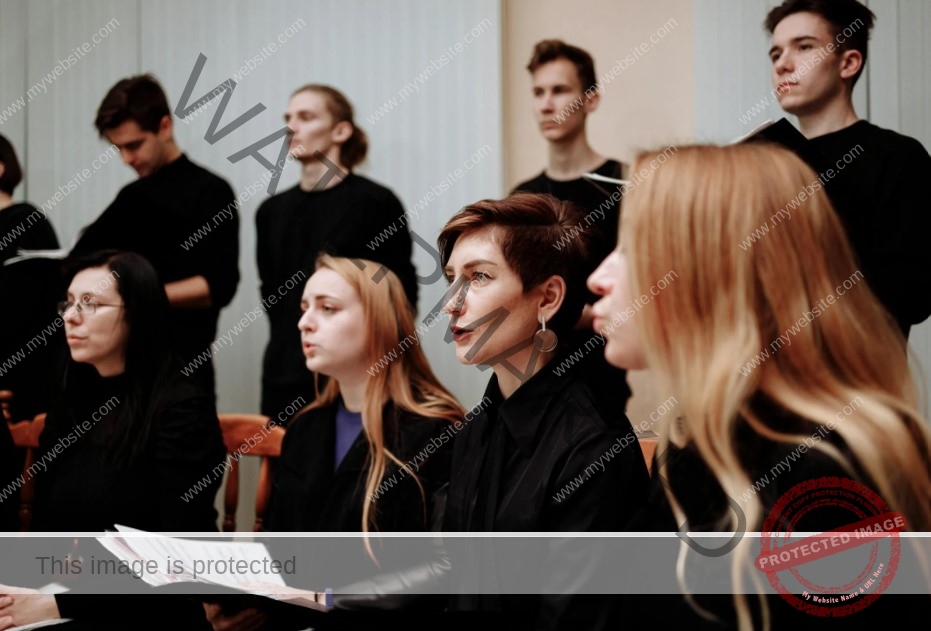Explore Harvard University a cappella groups, highlighting the music, performance, and tradition that make vocal ensembles a beloved part of campus culture. We also discuss Harvard student music traditions and A cappella at Harvard University. Additionally, we talked about Harvard University vocal performances.
Harvard A Cappella Groups
A Long History of Music
Harvard’s a cappella groups have a rich history and many styles. Founded in 1946, the Harvard Krokodiloes were the first official a cappella group on campus and set the stage for many groups to follow. Originally an all-male group, the Krokodiloes built their rep on classic American jazz and pop songs, and their suits have become part of their iconic look.
Over time, the a cappella scene has grown and now Harvard is home to many groups, each with their own style and personality. Some groups, like the Radcliffe Pitches, do classic jazz, others, like the Harvard Opportunes and the Harvard LowKeys, do pop and rock. This diversity of style means each group can find their own niche and there’s something for everyone who loves a cappella at Harvard.
Individuality and Style
Every Harvard a cappella group has their own personality and sound, reflecting the interests and talents of its members. The Harvard Callbacks are known for their fun shows and wide range of music, pop, rock and soul all mixed together to appeal to everyone. The Harvard Fallen Angels, an all-female group, are recognized for their powerful harmonies and creative arrangements of modern songs.
Harvard’s a cappella groups differ not just in music style, but also tradition. The Krokodiloes wear blazers and ties, a nod to their 1940s roots, while the Radcliffe Pitches wear dresses during their shows, in honor of being the oldest female a cappella group at Harvard. These small details give each group their own flair and help create a sense of continuity within the Harvard a cappella community.
Co-ed, All Male and All Female
One of the best things about Harvard’s a cappella scene is its inclusivity. There are co-ed groups like the Harvard Opportunes and the LowKeys, where men and women sing together to create a balanced sound. There are all-male groups, like the Krokodiloes, and all-female groups like the Radcliffe Pitches and the Fallen Angels, each with their own vocal blend and style.
This diversity within Harvard’s a cappella groups means students have many options to choose from, depending on their vocal range and musical interests. It also means each group has their own sound and adds to the many musical traditions at Harvard.
Harvard Student Music Traditions
What A Cappella Means to Harvard
A cappella is more than just a show at Harvard—it’s a tradition that ties students across decades. Every performance, whether at a random campus event or a formal concert, becomes part of Harvard’s history. Our a cappella groups perform at big campus events like commencement, alumni gatherings and seasonal concerts. It’s a chance for students to share their talent with the wider Harvard community and feel proud and connected with each other and the audience.
See also: How Harvard University’s Annual Charity Run Supports Global Causes
Milestones and Seasonal Events
Every year Harvard’s a cappella groups put on special concerts for milestones, reunions and seasonal events. The Harvard Krokodiloes have a winter concert where they perform classic jazz and swing songs that have been in their repertoire for decades. The Radcliffe Pitches have a spring show where they perform jazz standards and modern songs and often alumni come back to campus to reconnect with their musical roots.
These events are a big part of Harvard’s student music traditions and give students the chance to experience live music and Harvard’s a cappella culture. Many of these concerts are open to the public so local residents and visitors can come and experience the energy and talent of Harvard’s a cappella groups.
Tours and Outreach
Many of Harvard’s a cappella groups also go on national and international tours, taking their music to audiences worldwide. The Harvard Krokodiloes for example have toured extensively, performing in cities across the US, Europe and Asia. These tours allow students to share Harvard’s unique musical tradition with a global audience and often include performances at embassies, cultural festivals and private events.
These outreach efforts are a big part of Harvard’s a cappella culture as they spread the joy of a cappella music and give students the chance to experience different cultures and connect with new audiences. Touring also helps Harvard a cappella groups develop a sense of community and teamwork as members have to rely on each other to deliver polished performances in new and unfamiliar settings.
A Cappella at Harvard University
How to Join an A Cappella Group
If you want to get into the Harvard a cappella scene, auditions are held at the beginning of each semester. Auditions are open to all Harvard undergrads, but each group has its own audition process and requirements. It’s competitive, because many students want to join a Harvard a cappella group and be part of the Harvard tradition.
During auditions, you may be asked to sing a solo, harmonize with other singers, and do vocal exercises to test your range and pitch. The process is tough, but it ensures our groups are top notch. If you make it in, being in an a cappella group is an amazing experience to develop your musical skills, make new friends, and be part of a tight-knit community.
Rehearsals
Once you’re in a Harvard a cappella group, you become part of a structured rehearsal process. Each group rehearses several times a week, working on vocals, harmony, and choreography for upcoming shows. Rehearsals are not just to practice and perfect each song but also to bond and become a team.
Through this intense rehearsal process, students in Harvard’s a cappella groups develop skills such as musicianship, discipline, and teamwork. Rehearsing and performing together creates a strong sense of camaraderie among group members, so a cappella is a big part of their Harvard experience.
See also: Community Outreach: How Harvard University Engages with Boston’s Underserved Communities
Harvard University Vocal Performances
Vocal Performance
Harvard’s a cappella groups are known for their vocal performances, which showcase each member’s talent and hard work. Unlike traditional groups, a cappella groups only have vocal talent, which means a high level of skill and precision. Each voice contributes to the overall sound, with different members taking on roles such as lead vocals, harmonies, and vocal percussion.
Singing without instruments can be tough, because each singer has to be in tune and in rhythm with the rest of the group. Harvard’s a cappella groups take pride in being able to create complex sounds with just their voices and their performances are a testament to the work and dedication of each member.
Songs and Repertoire
Each Harvard a cappella group has its own songs and repertoire that reflects its style and musical influences. The Krokodiloes do jazz standards and classic pop, the Opportunes do contemporary pop and rock. This variety of repertoire means each group can appeal to different audiences so the Harvard a cappella scene stays fresh.
Over time certain songs become ingrained in each group’s repertoire and are passed down from one generation of singers to the next. These signature songs are part of Harvard’s a cappella tradition and create a sense of continuity and nostalgia for both current students and alumni.
Master the Stage
Beyond their voices, a cappella group members also develop stage presence. A cappella performances require performers to connect with the audience, using their faces and bodies to convey the emotion and energy of the song. This connection with the audience is key to Harvard University vocal performances as it makes the experience better for the performers and the listeners.
Through their performances students learn skills that go beyond music. They gain confidence, poise and the ability to perform under pressure – all skills that are useful in both personal and professional life.
See also: Harvard’s Charity Galas: Raising Awareness and Funds for Important Causes
Why Harvard University A Cappella Groups Matter
Building a Sense of Belonging
Harvard University’s a cappella groups are more than just musical groups – they’re communities where students form lifelong friendships and connections. Being in an a cappella group allows students to connect with others who share their love of music and create bonds that often last long after graduation. These bonds are strengthened through shared experiences – rehearsals, performances and tours – making a cappella a part of the Harvard experience.
Keeping the Harvard Tradition Alive
The tradition of a cappella at Harvard is part of the university’s cultural history. Harvard’s a cappella groups add to the university’s legacy of creativity, excellence and tradition and inspire future generations of students to continue this beloved art form. Whether through performances on campus, tours around the world or alumni reunions, Harvard’s a cappella groups will continue to enrich the university’s musical landscape and uphold its commitment to the arts.
See also: Sustainable Philanthropy at Harvard University: Environmental Charity Efforts
Conclusion
Harvard University a cappella groups are music, tradition and community. They give students the opportunity to sing, grow and make lifelong friends. Through performances, rehearsals and tours Harvard’s a cappella groups contribute to the university’s cultural heritage and create a musical community that connects students, alumni and audiences.
A cappella at Harvard will continue to thrill and delight for years to come. For students being in a Harvard a cappella group is a life changing experience full of happiness, creativity and friendship. And for audiences each performance is a reminder of the magic and might of music, a celebration of the voices that make Harvard a cappella so special.
See also: https://en.wikipedia.org/wiki/The_Harvard_Krokodiloes

